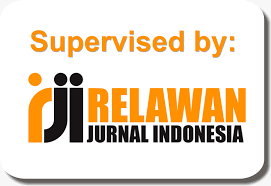Prospective Teachers' Learning Strategies in Learning English
DOI:
https://doi.org/10.52333/djoee.v5i2.836Keywords:
language learning, strategies, prospective teachersAbstract
Language learning strategies are specific actions, processes, acts, or methods that students frequently use to improve their language proficiency. Learning strategies are crucial for language learners since they facilitate the learners in processing language learning and acquisition. This current research highlights the investigation of prospective teachers’ preferences on learning strategies they mostly adopt when learning English. This research used a cross-sectional survey design. The sample was 147 prospective teachers, selected by using total sampling. The data was obtained using a Strategy Inventory of Language Learning (SILL) questionnaire, version 7.0., adopted from Oxford (1990) which consisted of 50 items measuring 6 learning strategies: memory, cognitive, compensation, metacognitive, affective, and social. The students used a Likert scale of 5 ratings to respond to each item of the questionnaire describing their preferences and experience in learning English. The obtained data were analyzed descriptively by measuring and comparing the mean score range to identify which learning strategy was mostly employed by the students in English language learning. The research findings showed that the mean score of metacognitive strategy was 3.625. It was higher than other learning strategies. It indicated that the prospective teachers mostly adopted the metacognitive as their learning strategy in learning English.
References
Andrews, S. (2006). The evolution of teachers’ language awareness. Language Awareness, 15(1), 1-19.
Anggraini, A. (2024). The Correlation among Self-Efficacy, Cognitive Strategy, and Students’ Speaking Achievement of Eleventh Graders at SMK Kesehatan Kader Bangsa Palembang. Didascein: Journal of English Education, 5(1), 70-77.
Anthonysamy, L., Ah Choo, K., & Soon Hin, H. (2021). Investigating Self-Regulated Learning Strategies for Digital Learning Relevancy. Malaysian Journal of Learning and Instruction, 18(1), 29-64.
Chamot, A. U. (2004). Issues in language learning strategy research and teaching. Electronic journal of foreign language teaching, 1(1), 14-26.
Chamot, A. U. (2005). Language learning strategy instruction: Current issues and research. Annual review of applied linguistics, 25, 112-130.
Creswell, J. W. (2012). Educational research: Planning, conducting, and evaluating quantitative and qualitative research (4th ed). Boston, MA: Pearson.
Creswell, J. W. (2014). A concise introduction to mixed methods research. SAGE publications.
Ghani, M. (2003). Language learning strategies employed by L2 learners. Journal of Research (Faculty of Languages & Islamic Studies), 4(1), 31-36.
Habók, A., & Magyar, A. (2018). The effect of language learning strategies on proficiency, attitudes and school achievement. Frontiers in psychology, 8, 293044.
Hardan, A. A. (2013). Language learning strategies: A general overview. Procedia-Social and Behavioral Sciences, 106, 1712-1726.
Julistri, A., Tridinanti, G., & Manurung, J. E. (2024). The The Correlation between Vocabulary Learning Strategies and Reading Comprehension. Didascein: Journal of English Education, 5(1), 30-43.
Lee, C. K. (2010). An overview of language learning strategies. Annual Review of Education, Communication & Language Sciences, 7.
Marlina, R., & Xu, Z. (2018). English as a lingua franca. The TESOL encyclopedia of English language teaching, 1-13.
Nurharjanto, A. A., & Widyantoro, A. (2020). The effect of language learning strategy and technology toward students’ writing skills. Jurnal Kependidikan Penelitian Inovasi Pembelajaran, 4(2), 213-225.
Oxford, R. L. (1990). Language learning strategies: What every teacher should know. (No Title).
Oxford, R. L. (1990). Styles, strategies, and aptitude: Connections for language learning. Document Resume, 73.
Peacock, M., & Ho, B. (2003). Student language learning strategies across eight disciplines. International Journal of Applied Linguistics, 13(2), 179-200.
Pebriani, L. K. (2013). Language Learning Strategies Used by Learners in SMA N 1 Ungaran (Doctoral dissertation, Program Studi Pendidikan Bahasa Inggris FBS-UKSW).
Rao, P. S. (2019). The role of English as a global language. Research journal of English, 4(1), 65-79.
Rose, H. (2015). Researching language learner strategies. Research methods in applied linguistics: A practical resource, 421, 437.
Teng, M. F. (2023). 8 Language Learning Strategies. Cognitive Individual Differences in Second Language Acquisition, 147.
Teng, M. F., & Yue, M. (2023). Metacognitive writing strategies, critical thinking skills, and academic writing performance: A structural equation modeling approach. Metacognition and Learning, 18(1), 237-260.
Zakaria, N. Y. K., Azmi, N. E., & Hadi, N. A. A. (2019). Improving reading skills using language learning strategies (LLS). J. Couns. Educ. Technol, 2, 1-5.
Zimmerman, B. J. (1990). Self-regulated learning and academic achievement: An overview. Educational psychologist, 25(1), 3-17.
Downloads
Published
How to Cite
Issue
Section
License
Copyright (c) 2024 Laila Amalia, Jenny Elvinna Manurung

This work is licensed under a Creative Commons Attribution-NonCommercial-ShareAlike 4.0 International License.







